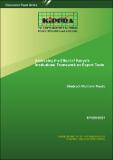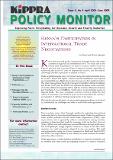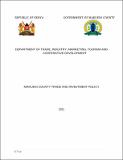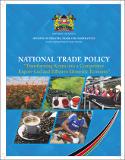| dc.description.abstract | This study sought to assess the effect of Kenya’s institutional framework in
promoting export trade as a channel for long-term growth and economic
development as enshrined in the Kenya Vision 2030. Panel data obtained
from World Bank’s Enterprise Surveys spanning 2007, 2013, and 2018 was
applied to the censored Tobit estimator. Institutional framework was measured
using efficiency of the court system, access to trade finance, frequency of
tax inspections, bribes during tax inspections, access to formal training
programmes for permanent and full-time employees, rigidity of customs and
trade regulations, internationally recognized quality certifications, informal
competition, operating licenses, and business licensing and permits. Gender of
the owner of the firm, managerial experience, and firm size were used as controls.
Tax inspections were associated with a shrinkage in the country’s fortunes
from export trade. In contrast, access to trade finance, on-the-job training of
employees, internationally recognized quality certifications, and firm size were
associated with growth in export trade. The findings point towards a need to
enhance institutional capacity, undertake regulatory reforms in the export
trade sector, invest towards a national quality infrastructure, and enhance selfregulation
for export trade promotion. | en |




